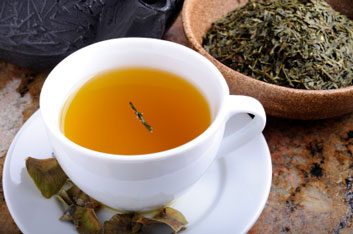
1. Arthritis affects women more than men
According to The Arthritis Society, some 2.9 million Canadian women are believed to suffer from some type of arthritis and the number is expected to reach 3.9 million by 2026-nearly twice the number of men. Theories abound, ranging from the belief that women’s weaker cartilage and tendons are the cause, right up to a link with estrogen. All are unproven, but the statistics are undeniable. For example:
• Osteoarthritis affects 3,000,000 (or one in 10) Canadians, with twice as many women suffering from the disease as men, according to the Arthritis Community Research & Evaluation Unit. Most OA sufferers develop the condition after 45, but it can strike at any age.
• Rheumatoid Arthritis affects 300,000 (or one in 100) Canadians and affects three times as many women as men. Most RA sufferers develop the condition between the ages of 25 and 30, but it can strike anyone, from babies to the elderly.
• Lupus (systematic lupus erythematosus, AKA SLE) affects 15,000 ( or one in 2,000) Canadians. Women develop lupus eight to 10 times as often as men, usually between the ages of 15 and 45. But the disease can strike at any time from babyhood to old age.
• Polymyalgia affects 300,000 (or one in 100) Canadians and three times as many women as men. Most develop the disease between 25 and 50, but it can strike any time.

2. Rheumatoid arthritis is inherited
It seems that many people who develop RA inherited their susceptibility to the disease. Several different genes probably determine whether someone will have a tendency to develop RA and how severe his or her disease will be. As you might expect, these tend to be genes that control the immune system.

3. There are more than 100 types of arthritis
Here are some of the most common:
Osteoarthritis (OA) is by far the most common type of arthritis, affecting some three million Canadians, or about half of all Canadians with arthritis.
Rheumatoid arthritis (RA) is the most common type of inflammatory arthritis, and usually affects many joints in the body.
Fibromyalgia’s main features are severe and widespread muscle pain that is most pronounced in the neck and shoulders, extreme fatigue and-in most cases-poor sleep. Fibromyalgia can feel like a joint disease, but the pain actually occurs in nearby muscles, ligaments and tendons.
Ankylosing spondylitis (AS) is a chronic inflammation of the spine, and is mainly a disease of young people, often beginning before age 20 and rarely affecting people over 40.
Systematic lupus erythematosus (lupus) is a chronic disease that usually inflames the joints-and also affects the skin, kidneys, blood vessels, nervous system and virtually every other organ in the body.
Other types of arthritis:
• Reiter’s syndrome
• Gout
• Pseudogout
• Polymyositis
• Psoriatic arthritis
• Lyme arthritis

4. Drinking tea could lower your risk
One study presented to a recent meeting of the American College of Rheumatology confirmed tea’s arthritis-taming benefits: Older women who consumed three or more cups a day had a 60 percent lower risk of developing rheumatoid arthritis than other women. But just as remarkable was a tandem finding that women who drank four or more cups of decaffeinated coffee a day appeared to double their risk of developing RA.

5. Being overweight increases your risk
Piling on extra pounds is now recognized as a major cause of osteoarthritis. And judging by recent surveys showing that more than half of all North Americans are overweight, it may be the most important cause of all. In particular, obesity can cause OA of the weight-bearing joints-the knees, and to a lesser extent, the hips. But it is also associated with a greater risk of OA in other joints as well, including the back, ankles, big toes and hands.
Related:
• Arthritis: Your guide to treatments that work
• 9 arthritis-fighting superfoods
• Homemade arthritis remedies: What works?
